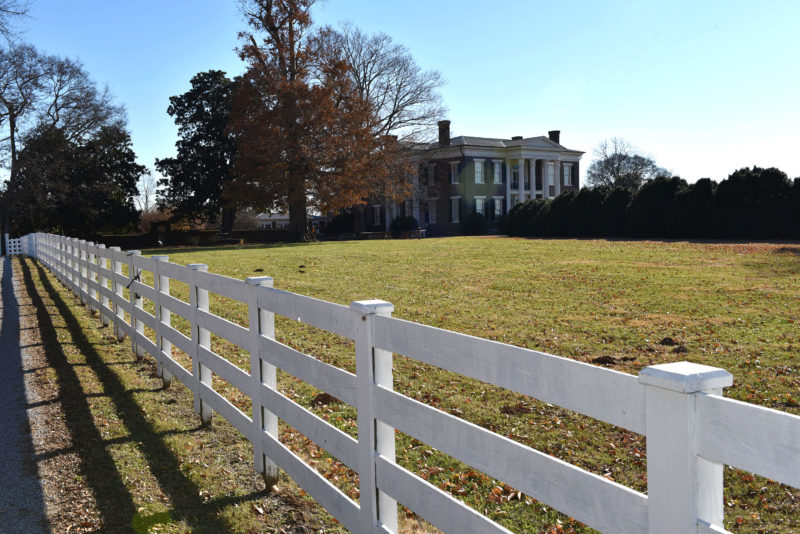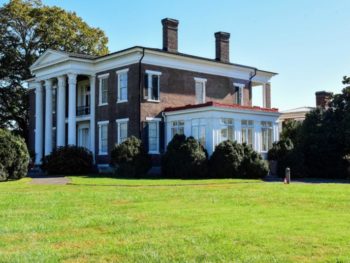The Spring Hill Board of Mayor and Aldermen on Monday night officially accepted the donation of Rippavilla Plantation and its related operational responsibilities, allowing for the permanent preservation of the historic home, 98.4 acres of passive park space, and all of its related buildings.
The acquisition of Rippavilla fits neatly into the City’s “Spring Hill Rising: 2040 Comprehensive Plan,” which calls for the preservation of natural areas, creating the highest and best use of significant historic properties, preserving the area’s rural character, and preservation of cultural history ensuring future generations can enjoy our area’s natural and cultural legacies.
The Friends of Rippavilla LLC, a 501(c)(3) nonprofit, will continue to manage donations, grants and fundraising events for the historic site, while the City will manage the ongoing maintenance and preservation of the property.
Planning for the acquisition started in June 2016 when Mayor Rick Graham formed a Rippavilla Due Diligence Panel tasked with fully exploring the option of the donation of Rippavilla to the City for the permanent preservation and operation of the historic site. The panel reported its findings after six months of work, and the Spring Hill Board of Mayor and Aldermen voted in January 2017 to pursue the operational agreement.
“This is an extremely exciting donation to the City. The Board of Mayor and Aldermen has long strived to protect and enhance historically significant properties in Spring Hill, and this is a huge step forward,” said Spring Hill Alderman Matt Fitterer, who served on the Rippavilla Due Diligence Panel. “We can’t thank the Rippavilla Board enough for its dedication and stewardship of the mansion and land. We’re excited and honored to partner with the Land Trust of Tennessee and Rippavilla Inc. to continue this work. The City will use the property to promote regional tourism and our history as well as create passive recreational opportunities for Spring Hill citizens to enjoy.”
The property, which sits on the Maury County side of Spring Hill, includes, a two-story brick antebellum-style plantation home, carriage house, an original slave cabin, a freedmen bureau’s school house, historic Cheairs Cemetery, Brown’s Stand, the Ikard Center, Rayburn Amphitheater, and several barns and other structures supporting the agricultural use of the property.
Rippavilla has a rich history since its construction in the 1850s. Before the U.S. Civil War, the plantation served as residence for the Cheairs family. Rippavilla played a major role during the Civil War era, especially in the Battle of Spring Hill. Generals and their armies from both sides used Rippavilla as headquarters on multiple occasions. After the war, the property was sold numerous times until Maury County Industrial Board purchased the estate in 1985. After the purchase, the property was leased to Saturn Corporation.
In 2007, General Motors donated Rippavilla and 98.44 acres to Rippavilla Inc., with the approval of Maury County government and the Industrial Development Board. Rippavilla Inc. agreed to professionally pursue historic preservation, education and fiscal solvency in return for a 10-year, $100,000 annual stipend from GM. October 2016 marked the 10th and final year of the GM agreement. Under its current structure, Rippavilla Inc. operates with about $95,000 in annual expenses over its total income without GM’s donation.
Initially, the City will temporarily subsidize any remaining funding shortfall, but City officials have said they envision the subsidy being quickly dissolved through additional fundraising events and marketing visibility. One of the identified ways of addressing funding is through the local tourism tax the City of Spring Hill recently adopted after the ability to do so was enacted by the state legislature in 2016. The hotel/motel tax is projected to produce about $100,000 a year in new revenue that qualifies to spend on expenses such as the operations, maintenance and promotions of Rippavilla.
“This is a momentous and historic day for the City of Spring Hill, and I am eager to see Rippavilla become a valuable public asset offering our residents nearly 100 acres of additional passive park space, while boosting our historic tourism and economic development potential,” said Spring Hill Alderman Susan Zemek, who served on the Rippavilla Due Diligence Panel. “The best part is, this notable historic site has been put into a permanent conservation easement guaranteeing its preservation for generations to come. Thank you to everyone involved for making this important legal transaction and partnership a reality.”
A 24-member board of directors governs Rippavilla Inc., which employees 12 (full-time equivalent) employees, including an executive director, site rental coordinator, gift shop employees, property maintenance employees and docents.
Rippavilla’s current activities include tours to travelers, school groups, civil groups, bus tours, along with hosting living histories and reenactments. The site also operates a gift shop in the 1914 carriage house serving as the office for the site rental coordinator to meet with potential renters as they tour the facility prior to renting the venue. The home includes a fully functioning catering kitchen. Rippavilla also leases remaining acreage to a local farmer for crop production, as well as allowing local Scouting and civic groups to meet in the Ikard Center.
In November 2016, when the Rippavilla Board of Directors approved the proposal outlining the terms under which Rippavilla Inc. would convey the property, the proposal indicated several significant components, including:
- ΙThe City will be obligated to maintain the property, including utilities, roads/parking, building structures, lawns and grounds.
- Prior to conveyance, the property will be placed into a conservation easement granted to Land Trust for TN.
- Any construction or activities require The Land Trust of Tennessee’s prior approval. Before undertaking any activities on the property, the City will be required to prepare a property and facilities Master Plan.
- No public roads may be constructed on the property. No permanent or temporary structures may be constructed except within two building envelopes identified in the proposal, including parking.
- Trails, paths, benches, picnic tables, etc. may be constructed within the building envelopes without consent. Athletic fields are prohibited. A greenway may be constructed through the property outside of the building envelopes with prior written consent.
- Revenues accrued by commercial activities will be restricted to uses that would further promote the historic preservation and enhancement of the property.
- Artifacts on the property will remain property of the Friends of Rippavilla.
- Friends of Rippavilla will continue activities and contributions in support of the property.
- An oversight committee will be established by the City relating to aesthetic decisions pertaining to historical preservation and accuracy of the property. Rippavilla Inc. will be allowed to appoint a portion of the membership.





